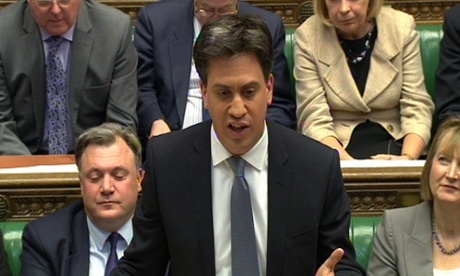Labour kills. If the Tories were in opposition and Labour presiding over the scale of the current NHS emergency, Lynton Crosby, serial political strategy adviser to the Conservative party, would be merciless. His team would want the Tories relentlessly to pin the excess death toll on Labour. Boris Johnson, as leader of that opposition, would turn up the emotional amperage shamelessly. The needlessly dead in crowded A&E departments, hospital corridors or after long ambulance waits, courtesy of 13 years of Labour neglect and mismanagement, would be chronicled in excoriating detail by the rightwing media. The public would be enraged.
And the public would be right. But it is a Conservative government, media outrage is limited and the public has not turned vengeful. Certainly, it supports striking health workers. Yet so far the link between the 600,000 people who last October and November waited four hours or more in A&E before treatment, and death rates above past averages, is largely the province of statisticians and health experts. The Royal College of Emergency Medicine (RCEM) estimates that the current excess death rate is “roughly” between 300 and 500 a week, a claim disputed by both the NHS and the prime minister; be “careful about bandying around such numbers”, Rishi Sunak says, refusing to acknowledge that the NHS is in crisis. His caution is understandable: the Tory party is in danger of being labelled the death party.
Experts differ on the exact numbers, but not the fact that waiting times beyond four hours in A&E cause deaths. An article in the Emergency Medicine Journal last year, using data from 2016 to 2018, found that a wait of six to eight hours in A&E increased the rate of death by 1.7 percentage points. The Economist has built its own model and finds similar results: between August and November it suggests that 325 people a week were dying because of longer waiting times. Stuart McDonald, who specialises in health analytics at LCP, told Radio 4 last week that focusing on October and November – and assuming that those who waited more than 12 hours were slightly more likely to die given the longer wait – excess deaths were running at 415 people a week. The RCEM’s rough estimate is surely right.
And that is just what is happening in A&E. England is short of 4,200 GPs, so that the government’s 2019 target of having 6,000 more GPs by 2024 is now impossible – and has been quietly dropped. But the GP crisis, too, is having an impact. The Times calculates that over 2022 as a whole, excess deaths from all causes were 51,159 above the pre-Covid five-year average – the highest rate for 70 years. Yes, there should be adjustments for Covid and Britain’s ageing population but, even allowing for that, the 2022 death rate was abnormally high. The root cause is a failing NHS and care system – GPs to A&E to social care.
Nor is it difficult to understand why: the NHS has not the capacity, the equipment nor numbers of staff – 133,000 jobs are unfilled – that it needs. And everyone outside the Conservative party bubble knows the reason – 13 years of underinvestment and neglect in the name of shrinking the state to deliver illusory tax cuts. The health secretary, Stephen Barclay, is at pains to stress that health systems across Europe are under pressure from Covid, that extra investment is being made and refuses to accept austerity as a cause. In any case, he told the Today programme, former Labour chief secretary to the Treasury Liam Byrne left a note on leaving office in 2010 that all the money had gone. The inference was the current crisis was Labour’s fault.
As a result, we do need to reassess austerity: when Labour left office, the NHS was in very good shape – A&E waiting times were a 10th of current levels. The former chancellor George Osborne now genially floats above the political fray as chair of the British Museum and a handsomely rewarded investment banker, saying that the country has nothing to fear from a Keir Starmer/Rachel Reeves-led government. But back in the day he was a party partisan above any other, feeding the Tory grassroots what they loved and aiming to succeed David Cameron as party leader. Indeed, that looked so certain that Johnson opted to outdo him and feed the faithful with even more of what they wanted – Brexit.
The Osborne-authored austerity of 2010-16 was not an economic necessity. The race to reduce the deficit beyond that allowed under previous Labour plans, with almost the entire burden placed on reducing public spending rather than raising taxes, was a political choice. It was informed by magical thinking: a shrunken state and lowering the tax “burden” would automatically create room for a reinvigorated private sector to drive growth – a more modest version of Trussonomics but from the same libertarian stable. It was, and is, nonsense. Markets are embedded in society; public agency and public spending are vital for capitalist vitality. The building blocks of any great economy are not tax cuts, but great organisations mobilising and energising their people around a shared purpose – and for which they need a network of supportive private and public institutions, including a great health service that keeps workforces healthy at work. It is a worldview foreign to today’s Conservative party. It does not understand the importance of great organisations, does not see its role as helping to build them and has no idea how to sustain one under its control, such as the NHS.
Osborne may think differently now but, by indulging magical thinking, he laid the foundations for today’s NHS collapse – too few beds, too few MRI scanners, too few GPs and pay rates allowed to fall woefully behind the private sector. It took 13 years for Labour to turn around the legacy after their election in 1997; it will take a similar period to repeat the task. In the meantime, the point has come to return fire, Crosby-style. Tory magical thinking has induced a structural crisis. Leaving the EU did not save the NHS; rather, it has helped induce its collapse. The economy is £120bn smaller and the tax take £40bn a year lower than it would have been had Brexit not happened. Overlay that with political choices and the message from the excess death rates is unambiguous. Tory policies kill.
• Will Hutton is an Observer columnist











